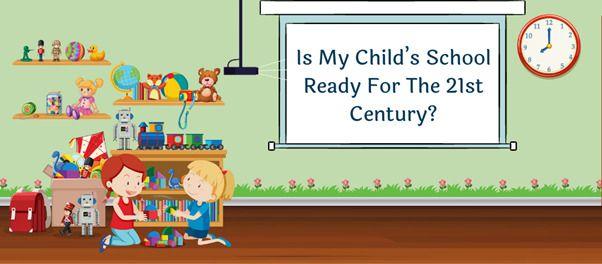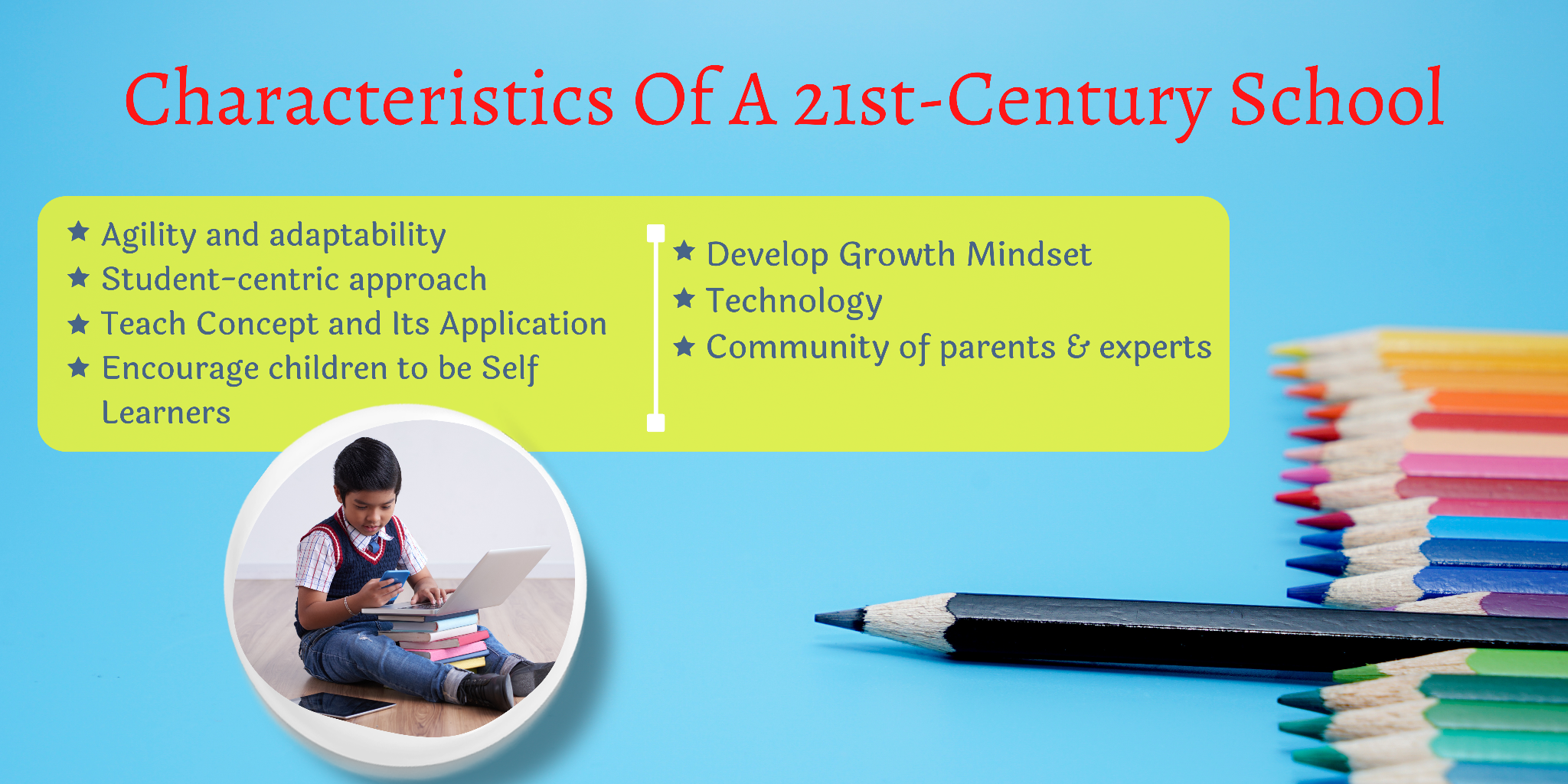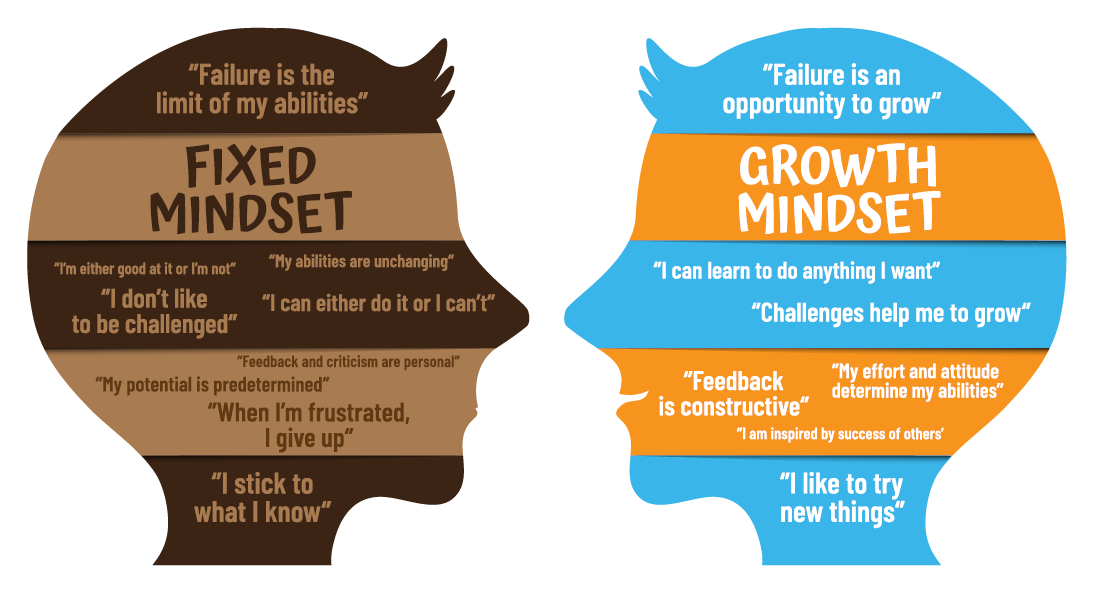
The 21st century is defined by rapid and disruptive changes happening in various areas of work due to the introduction of innovative technologies like Artificial Intelligence and Robotics. Knowledge is no longer confined to the libraries or a selected few people but is accessible to all of us at our fingertips. Now, we can learn whatever we want and wherever we want. Is your child’s school ready to prepare them for the 21st century?
60 to 70% of the jobs that will be available after 20 years are not even thought of today and hence the skills required for them are also not defined. A good example of this can be the disruption caused by the internet and mobile phones in the areas of photography, communication, and education.
To prepare the children for such a fast-changing and unknown world, schools need to acknowledge it and be agile enough to adapt to the new process and teaching methodologies keeping children at the center of their focus thus ensuring that children are ready for the future and not for today.




In this fast-changing world, schools should access and adapt to the skill requirements of future jobs. It should establish change management processes and a dedicated team in the school to regularly review its syllabus, teaching, and assessment methods and their implementation in the school. While adopting changes, the long-term effects of the same on holistic child development should be also evaluated.
Traditionally schools are teacher-centric but a 21st-century school should be student-centric. They should adapt to the learner’s profile and provide a personalized learning experience to each child by implementing the following processes.
Develop differential content based on the learning abilities of the child. Every child has their own pace of learning and the school should support them by providing appropriate learning material. Teachers should encourage and guide every student to create their Individual Development plans and they should help keep track of it.
Based on the topic, the school needs to carefully plan and use multiple methods of learning like experiential learning, lecturing, activity-based learning, performance-based learning, role plays, peer tutoring, self-learning, and others.
It’s a Famous saying “ If you judge a fish by its ability to climb a tree, It will live its whole life believing it is stupid. Traditionally, the school takes pen and paper tests only. But a progressive school should adopt various assessment methods too like product evaluation, project and performance reviews, portfolio assessments, etc. Every child should be assessed in a manner where they get better opportunities to showcase their knowledge. There should be a comprehensive evaluation of the child’s skills.
In a 21st-century school, teachers should act as a mentors and not as an instructor. They should give freedom to children and guide them while keeping passive supervision on them. They should not give close-ended instructions and keep tight control of the child’s actions. This will encourage children to explore new areas of knowledge and take ownership of their education.
In the 21st century, the objective of education is to ensure that students can apply the concepts that they are studying in real life rather than reproducing them in exams.
For this, all 21st-century schools should promote learning by doing. Conceptualize the learning and assessment process where students are made to think critically and encouraged to apply the knowledge in real life. This will prepare them for solving real-life problems.
Being a self-learner is the most important characteristic of a 21st-century person due to the fast-changing world and hence schools should ensure that they can nurture every child to be a self-learner. Children need to be explorers and not followers. The school needs to
In the 21st century, it is important to have a growth mindset which is only possible if we have a habit of reflection and refinement, grit and accept failures as opportunities for growth. The learning process at school should be defined in such a manner that it encourages children to develop the above-mentioned life skills right from an early age.

It is not possible to provide a personalized learning experience to children without the use of technology. 21st-century schools should invest in adopting the latest technology and encourage its safe use among teachers and students. The schools should work on training and guiding the students and teachers on Information Literacy, Media Literacy, and Technology Literacy regularly.
21st-century schools should acknowledge parents and experts from the community to be their partners and take concrete steps to build a cohesive and trustworthy community of parents and experts. When all the significant adults in any child’s life work together in harmony, it helps to build a caring environment for the child thus enabling better learning outcomes for the child.
Eminent educationists from various countries acknowledge the significance of changes required in the education system to ensure the development of 21st-century skills in children. Even in India, the government took its first step towards transforming schools in India to be 21st-century schools by introducing NEP 2020. The government, CBSE, and NCERT are making a lot of efforts to train the teachers to adopt 21st-century skills and support them in whatever way possible.
Now the success of NEP 2020 and the future of our children depends on how well we, all parents and teachers, adopt it and implement it on the ground in true spirit. Hence, I request all the teachers and parents in my country to spend some time learning about 21st-century skills and do their best to adopt them by heart so that our next generation is ready for the FUTURE and not Today.
Leave a comment
Comments